-Movie-Review.jpg)
The Long Walk (2025) - Film Review
The Long Walk, 2025.
Directed by Francis Lawrence.
Featuring Cooper Hoffman, David Jonsson, Garrett Wareing, Tut Nyuot, Charlie Plummer, Ben Wang, Roman Griffin Davis, Jordan Gonzalez, Josh Hamilton, Judy Greer, Mark Hamill, Joshua Odjick, Keenan Lehmann, Marina Stephenson Kerr, Noah de Mel, Teagan Stark, and Daymon Wrightly.
SYNOPSIS:
A group of teenage boys participates in an annual competition called “The Long Walk,” where they must keep a specific walking pace or face execution.
Ongoing discussions persist regarding whether a war film can effectively serve as anti-war, regardless of its intent, due to the often jarring violence depicted. The Long Walk stands out as a fierce and compelling anti-war film that employs allegory. Directed by Francis Lawrence, whose experience with The Hunger Games franchise makes him well-suited for this similarly dystopian young adult story—though more unrelenting in its darkness and brutality—the film is inspired by Stephen King’s novel, which he penned at the age of 18 and published later. It is likely no coincidence that this period coincided with the Vietnam War, shaping King’s viewpoint on conflict, interpreted in the film as a slow, merciless march toward death for young men.
Without delving into detailed backstory (further exploration would be irrelevant), the film immerses viewers in a fractured America devastated by an unspecified war, where nearly 99% of the population suffers financial hardship. At the helm of this oppressive structure is the cruel militia leader, The Major, played by Mark Hamill (who delivers a performance that feels somewhat exaggerated and serves as the film's weak link, reminiscent of a 1990s video game antagonist). He believes that much of the societal collapse stems from a lack of ambition among the populace. His grotesque solution is a deadly contest: a young representative from each state must enroll in the Long Walk.
This event occurs under the watchful eyes of enforcers in military vehicles, ready to eliminate anyone who falls below three miles per hour three times or stops moving entirely. An exception for the contestants allows one stop to be erased from their records after a certain time, introducing a tactical aspect to pacing and breaks.
Like most war-themed films, The Long Walk explores the brotherhood that inevitably develops among participants. The crucial difference here is that even as the boys instinctively band together to survive and encourage one another, only one can emerge victorious. The reward is a substantial cash prize designed to motivate greater participation in the workforce and future sign-ups for the Long Walk. Additionally, the winner may request any prize of their choosing, highlighting the twisted benevolence of those running this horrific game.
The characters in the film represent a diverse array of backgrounds and personalities, centering on Cooper Hoffman’s Raymond Garraty and David Jonsson’s Peter McVries. Raymond is a vengeful pessimist, while Peter, though rightfully horrified, maintains hope for humanity’s future. When they encounter a local spectator calmly observing the event, Peter remarks on society’s conditioning to accept this brutal spectacle as entertainment, punishment, and motivation. Throughout their exchanges, Peter’s optimistic demeanor shines through, encouraging fellow contestants—many of whom become his friends—to constantly seek beauty around them.
Meanwhile, Raymond (portrayed excellently by Hoffman—who delivers a poignant monologue about his father's influence on him) displays kindness by sharing food and helping fallen peers, though with a distinct perspective and motivation. While Raymond could use the financial reward to support himself and his struggling widowed mother (Judy Greer), he is also pursuing a deeper, undisclosed goal. Although some plot points are predictable and one revelation feels unnecessary, the film largely remains uncomfortably raw, avoiding any easy resolutions.
Amid a vibrant cast of characters are the jittery and talkative Hank Olson (Ben Wang), the nearly sociopathic Gary Barkovitch (Charlie Plummer), who dismisses the surrounding fatalities, and a studious individual documenting the Long Walk for a potential future book (drawing parallels to soldiers recounting experiences on the battlefield). The dialogue flows naturally, covering various topics from lost aspirations to playful teasing. This film emphasizes the bond among these young men as a collective rather than focusing solely on them as individuals.
As noted, the film’s portrayal of violence is unflinching yet never feels exploitative. Cinematographer Jo Willems captures much of the death (which is portrayed as even more dehumanizing than standard executions, with horrifying events already occurring to compel movement) from the perspectives of those moving forward, facing expressions of despair, rage, and sorrow—sentiments echoed in Jeremiah Fraites’ stirring score. The film manages to be visually dynamic despite primarily featuring characters walking, utilizing multiple angles and shaky movements to escalate intensity. Francis Lawrence and JT Mollner’s adaptation of The Long Walk is heart-wrenching and haunting, leaving an ind
-Movie-Review.jpg)
-Movie-Review.jpg)
-Movie-Review.jpg)
-Movie-Review.jpg)
-Movie-Review.jpg)
Other articles
 Hot Toys has revealed a sixth scale figure of Sergeant Hound from Star Wars: The Clone Wars.
Hot Toys has unveiled the sixth scale collectible figure of Sergeant Hound from the episode “The Jedi Who Knew Too Much” in the fifth season of the animated series Star Wars: The Clone Wars. The set also includes a figure of his massiff, Grizzer. Take a look at the promotional images here… SEE ALSO: Clone Commando Gregor joins […]
Hot Toys has revealed a sixth scale figure of Sergeant Hound from Star Wars: The Clone Wars.
Hot Toys has unveiled the sixth scale collectible figure of Sergeant Hound from the episode “The Jedi Who Knew Too Much” in the fifth season of the animated series Star Wars: The Clone Wars. The set also includes a figure of his massiff, Grizzer. Take a look at the promotional images here… SEE ALSO: Clone Commando Gregor joins […]
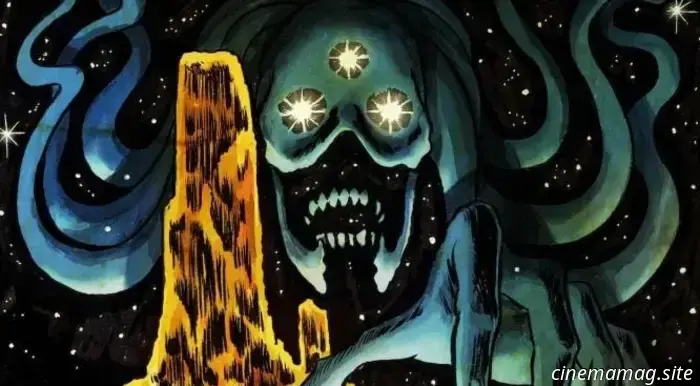 Star Wars: Tales from the Nightlands #1 - Comic Book Preview
Next week, Dark Horse Comics and writer Cavan Scott will revisit the galaxy far, far away with the debut of the horror-themed limited series Star Wars: Tales from the Nightlands, consisting of three issues. You can check out a sneak peek of the first issue below with the official preview… On Ryloth, Twi’leks murmur about the Nightlands, the […]
Star Wars: Tales from the Nightlands #1 - Comic Book Preview
Next week, Dark Horse Comics and writer Cavan Scott will revisit the galaxy far, far away with the debut of the horror-themed limited series Star Wars: Tales from the Nightlands, consisting of three issues. You can check out a sneak peek of the first issue below with the official preview… On Ryloth, Twi’leks murmur about the Nightlands, the […]
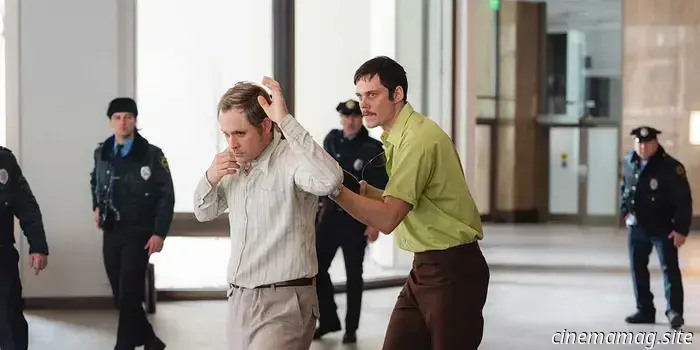 Venice Review: Gus Van Sant's Dead Man's Wire Delivers an Enjoyable Cinematic Experience
Gus Van Sant makes a comeback with Dead Man's Wire, a film featuring the same late-70s color palette as Kelly Reichardt's recent masterpiece The Mastermind, and similarly focusing on illicit characters and the complexity of a virtuous criminal. However, Van Sant's film is much more open to embracing genre conventions than Reichardt's brilliant twist. Bill Skarsgård
Venice Review: Gus Van Sant's Dead Man's Wire Delivers an Enjoyable Cinematic Experience
Gus Van Sant makes a comeback with Dead Man's Wire, a film featuring the same late-70s color palette as Kelly Reichardt's recent masterpiece The Mastermind, and similarly focusing on illicit characters and the complexity of a virtuous criminal. However, Van Sant's film is much more open to embracing genre conventions than Reichardt's brilliant twist. Bill Skarsgård
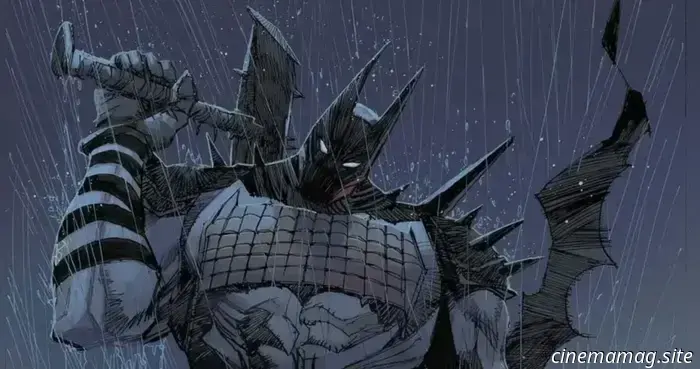 Absolute Batman #12 - Preview of the Comic Book
Next week, DC Comics is launching Absolute Batman #12, and you can check out a sneak preview of the issue in the official preview below… BANE LAUNCHES AN ASSAULT! Batman finds himself at the mercy of the formidable Bane. Although his body is in a weakened state, his mind and spirit remain resilient. But how much […]
Absolute Batman #12 - Preview of the Comic Book
Next week, DC Comics is launching Absolute Batman #12, and you can check out a sneak preview of the issue in the official preview below… BANE LAUNCHES AN ASSAULT! Batman finds himself at the mercy of the formidable Bane. Although his body is in a weakened state, his mind and spirit remain resilient. But how much […]
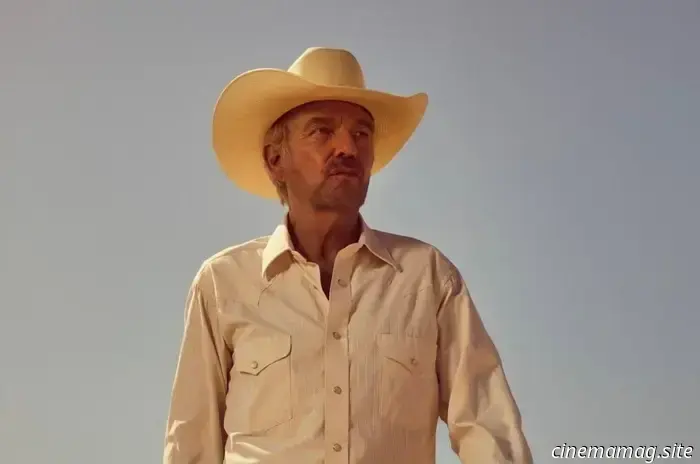 Paramount+ has released the trailer and promotional images for season 2 of Landman.
Paramount+ has unveiled a trailer for the second season of Taylor Sheridan’s (Yellowstone) highly regarded drama series Landman. The cast includes Billy Bob Thornton, Demi Moore, Sam Elliott, Andy Garcia, Ali Larter, Jacob Lofland, Michelle Randolph, Paulina Chávez, Kayla Wallace, Mark Collie, James Jordan, and Colm Feore. You can watch the season 2 trailer below… The story takes place in […]
Paramount+ has released the trailer and promotional images for season 2 of Landman.
Paramount+ has unveiled a trailer for the second season of Taylor Sheridan’s (Yellowstone) highly regarded drama series Landman. The cast includes Billy Bob Thornton, Demi Moore, Sam Elliott, Andy Garcia, Ali Larter, Jacob Lofland, Michelle Randolph, Paulina Chávez, Kayla Wallace, Mark Collie, James Jordan, and Colm Feore. You can watch the season 2 trailer below… The story takes place in […]
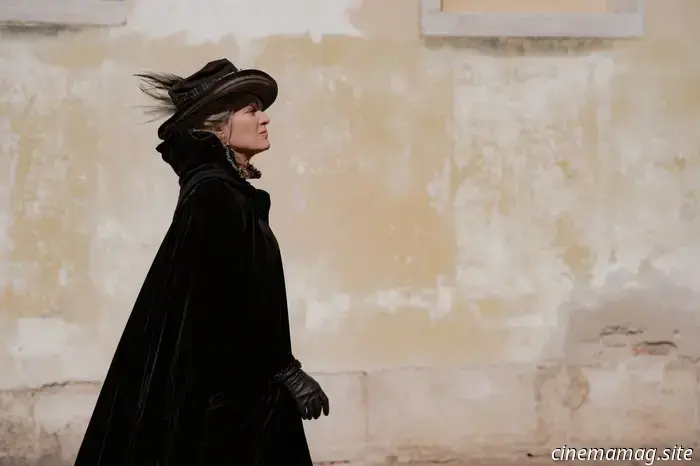 Venice Review: Pietro Marcello's Duse Offers a Simple Homage to a Legendary Prima Donna
In 1921, three years after the conclusion of WWI, a train left the small town of Aquileia in northeastern Italy. Adorned with flags and wreaths, it transported the coffin of an unknown soldier to his final resting place in Rome. The journey was slow and solemn. As it progressed, crowds assembled to honor his memory—everyday people
Venice Review: Pietro Marcello's Duse Offers a Simple Homage to a Legendary Prima Donna
In 1921, three years after the conclusion of WWI, a train left the small town of Aquileia in northeastern Italy. Adorned with flags and wreaths, it transported the coffin of an unknown soldier to his final resting place in Rome. The journey was slow and solemn. As it progressed, crowds assembled to honor his memory—everyday people
The Long Walk (2025) - Film Review
The Long Walk, 2025. Directed by Francis Lawrence. Featuring Cooper Hoffman, David Jonsson, Garrett Wareing, Tut Nyuot, Charlie Plummer, Ben Wang, Roman Griffin Davis, Jordan Gonzalez, Josh Hamilton, Judy Greer, Mark Hamill, Joshua Odjick, Keenan Lehmann, Marina Stephenson Kerr, Noah de Mel, Teagan Stark, and Daymon Wrightly. SYNOPSIS: A group of adolescent boys vie in […]
